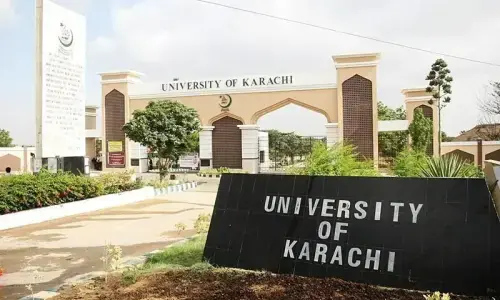KARACHI: On the eve of World Wetlands Day, the World Wide Fund for Nature-Pakistan (WWF-P) has underscored the urgent need to protect and restore the country’s wetlands, which serve as lifelines for biodiversity, local communities and sustainable development.
World Wetlands Day is being observed on Sunday (today). This year’s theme — Protecting Wetlands for Our Common Future — emphasises wetlands’ critical role in supporting livelihoods, food security, water regulation and climate resilience for future generations.
“WWF-Pakistan urges government agencies, civil society, businesses and local communities to take collective action for the conservation of wetlands as they support local livelihoods and offer ecosystem services.
“Simple actions such as reducing water wastage, preventing plastic pollution, promoting sustainable agriculture, and participating in wetland clean-up activities can contribute to preserving these invaluable ecosystems,” the organisation stated.
It also highlighted that species such as the Indus River dolphin, freshwater turtles, and migratory birds face serious threats from the degradation of the wetlands in Pakistan on account of water stress, untreated industrial waste, land reclamation, and agricultural runoff. These factors continue to shrink wetland areas, diminishing their ecological value.
Pakistan, it pointed out, is home to more than 240 significant wetlands, covering an estimated 10 per cent of the country’s land area, which offer livelihood support to local communities and provide essential ecosystem services, including water filtration, carbon storage, flood control, and habitat for countless species, including migratory birds and commercially important fish.
“However, these fragile ecosystems are under severe threat due to water scarcity, pollution, encroachment, unregulated development, climate change and unsustainable resource extraction,” it says.
WWF-P official Muhammad Jamshed Iqbal Chaudhry shared that the Ramsar-listed wetlands in Pakistan, such as Keenjhar Lake, Haleji Lake, Chashma Barrage and Jiwani Coastal Wetlands, are critical breeding and feeding grounds for migratory birds, including white-headed ducks, flamingos, cranes, and the critically endangered Siberian crane.
“They also serve as nature’s buffer against climate change, absorbing excess floodwaters and reducing the impact of extreme weather events. Conserving wetlands is, therefore, not just an environmental imperative but a social and economic necessity,” he said.
Published in Dawn, February 2nd, 2025


































